Art & Exhibitions
Meet a Long-Unsung Cartoonist Who Paved the Way for Disney
A new show at Florida's NSU Art Museum celebrates the influential illustrator Louis M. Glackens.
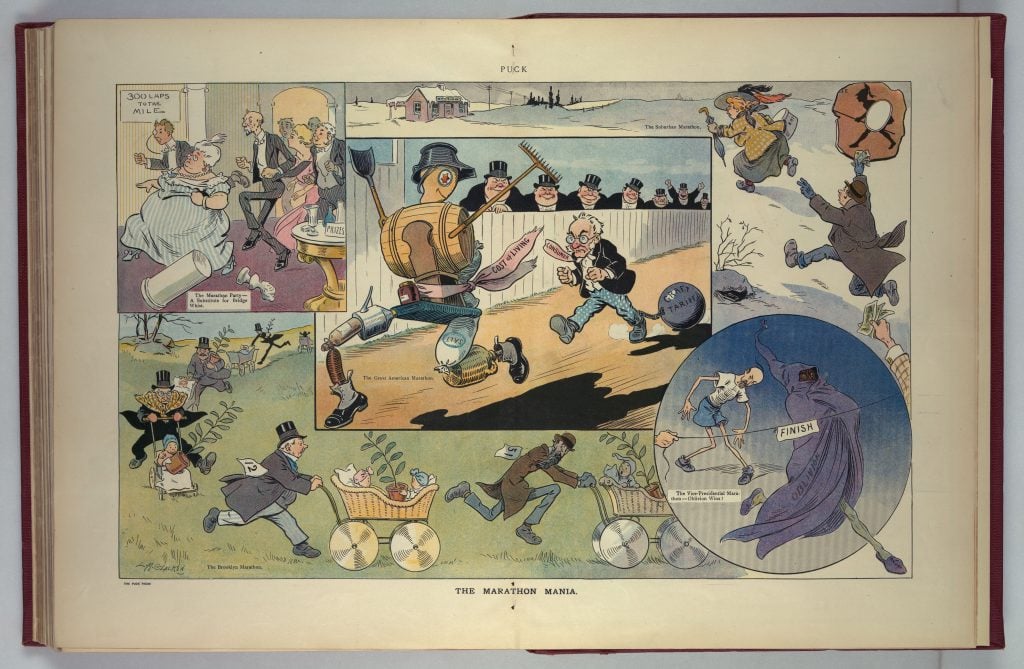
“Louis M. Glackens: Pure Imagination” at the NSU Art Museum in Florida’s Fort Lauderdale, revisits the life and work of an influential but largely forgotten cartoonist, illustrator, and animator from the early 20th century whose often whimsical penmanship, according to the museum, paved the way for legends such as Walt Disney.
Glackens was born in 1866 in Philadelphia and started drawing at an early age alongside his younger brother, William. While the latter went on to become a successful painter and prominent member of the Ashcan School, which focused on realistic portrayals of everyday urban life, Louis leaned towards the fantastical and cartoonish, pursuing a career in illustration.
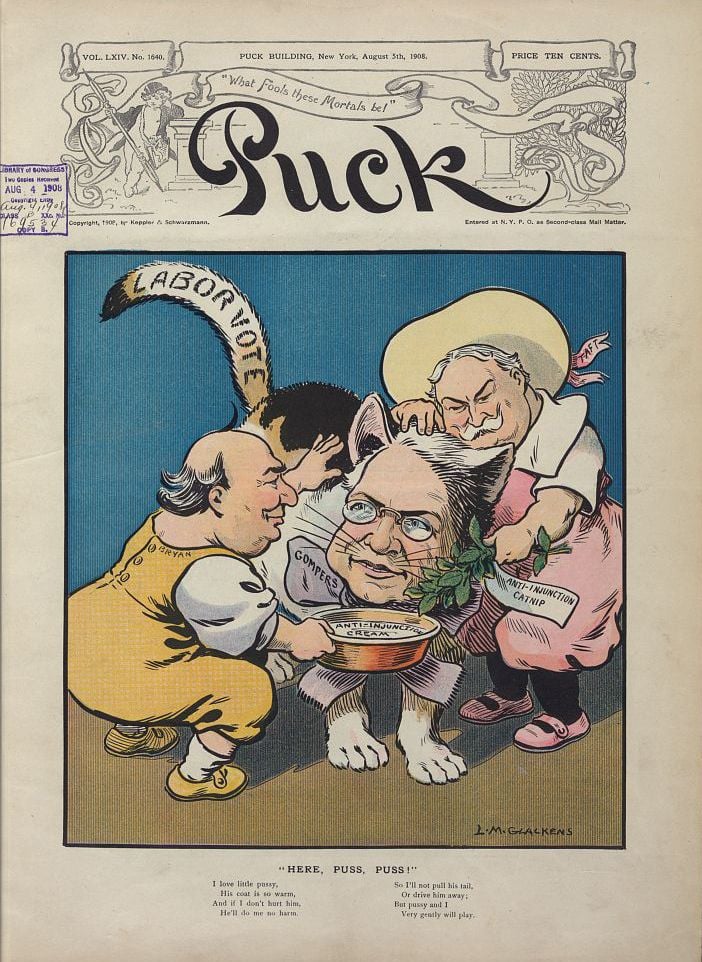
Louis M. Glackens, Here, Puss, Puss! (1908). Published in Puck, v. 64, no. 1640 (1908 August 4), cover. Puck © 1912 by Keppler & Schwarzmann. NSU Art Museum Fort Lauderdale.
For 20 years he worked as a staff artist for Puck, one of the first widely distributed political humor magazines in the U.S., where his confident lines brushed up against a sparkly wit as much as mordant cynicism. A selection of Glackens’s illustrations for Puck have been collected by the Library of Congress.
When Puck changed ownership in 1915, Glackens found work in the up-and-coming animation industry. Although he chiefly worked for a company called Bray Studios, his (uncredited) drawings can also be found in films and shows produced by Pathé and Sullivan Studios, two other early animation heavyweights.
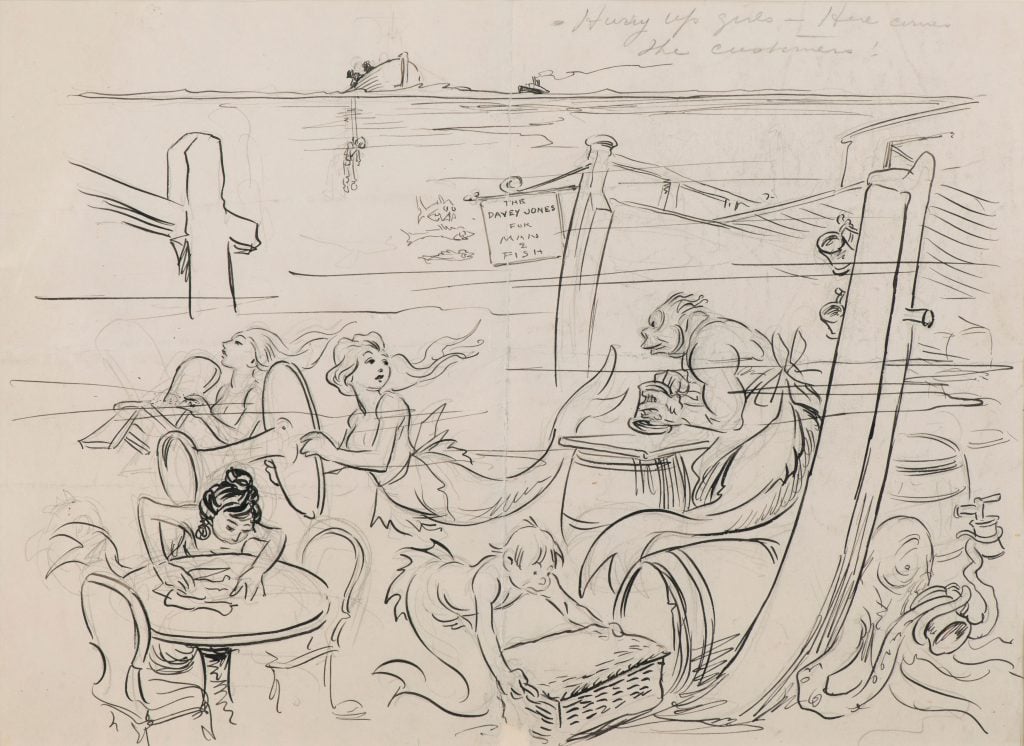
Louis Glackens, Hurry up Girls – Here comes the customers. Photo courtesy NSU Art Museum Fort Lauderdale, William Glackens Collection.
His work ranged from the kind of satire he developed for Puck, like the “Haddem Baad” series—in which primitive cavemen serve as stand-ins for their modern counterparts—to romantic fairytale adaptations such as Jack the Giant Killer, the sort of things Walt Disney would go on to make.
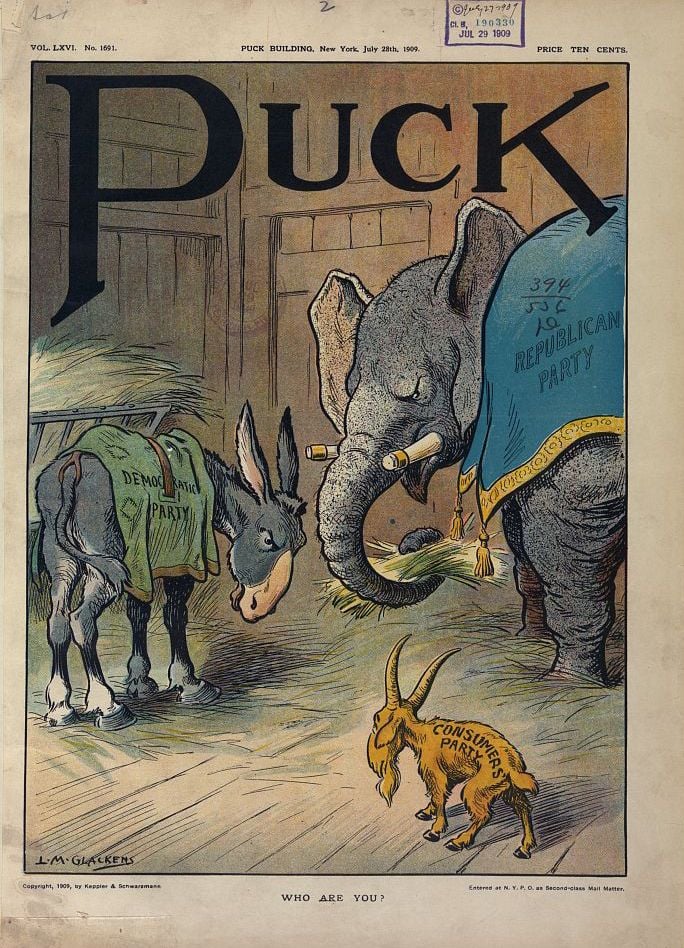
Louis M. Glackens, Who are you? (1909). Published in Puck, v. 66, no. 1691 (1909 July 28), cover. © 1909 by Keppler & Schwarzmann. NSU Art Museum Fort Lauderdale.
Glackens’s animated work was met with mixed reception. Although films often credited him as “Famous Cartoonist,” John Randolph Bray, founder of Bray Studios, later told animation historian Mark Langer that Glackens was “no good” and didn’t last “too long” in the field. Perhaps this conflict was linked to Glacken’s unique artistic tastes, which, according to the museum, tended toward the avant-garde.
The cartoonist would also find work in the commercial field, illustrating books including The Log of the Water Wagon (1905) and Monsieur and Madame (1924). Glackens died in 1933; his brief obituary in the New York Times described him as “one of the first artists to do animated cartoons for motion pictures.” His legacy in the following decades, however, would quietly be forgotten.
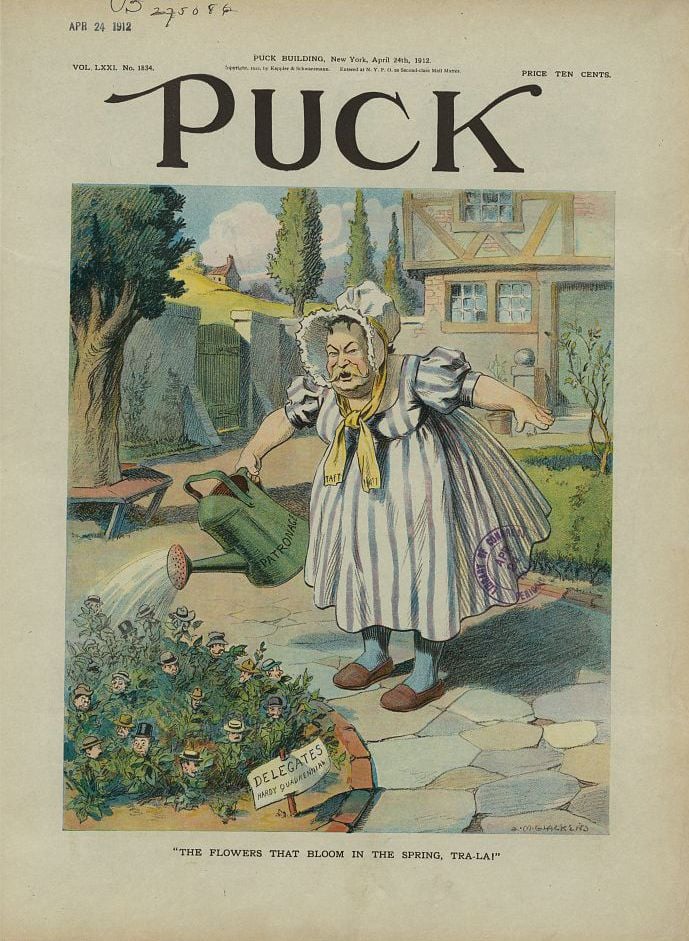
Louis M. Glackens, The flowers that bloom in the spring, tra-la! (1911). Published in Puck, v. 71, no. 1834 (1912 April 24), cover. Puck © 1912 by Keppler & Schwarzmann. NSU Art Museum Fort Lauderdale.
This is where “Louis M. Glackens: Pure Imagination” comes in. The exhibition shines a spotlight on several prints and drawings donated by the Sansom Foundation, centered by some of the political cartoons Glackens produced for Puck, which would be right at home in a present-day issue of The New Yorker.
A particularly famous one shows former U.S. President William Howard Taft, dressed as a matronly, mustachioed housewife, pouring a watering can labeled with the word “patronage” over a bed of flowers labeled “delegates: hardy quadrennial.” The caption read: “The flowers that bloom in spring, tra-la!” It is a commentary on Taft’s ill-fated bid for re-election against his successor, William Harding.
“Louis M. Glackens: Pure Imagination” is at the NSY Museum, Fort Lauderdale, Florida, April 15, 2024–March 30, 2025.





